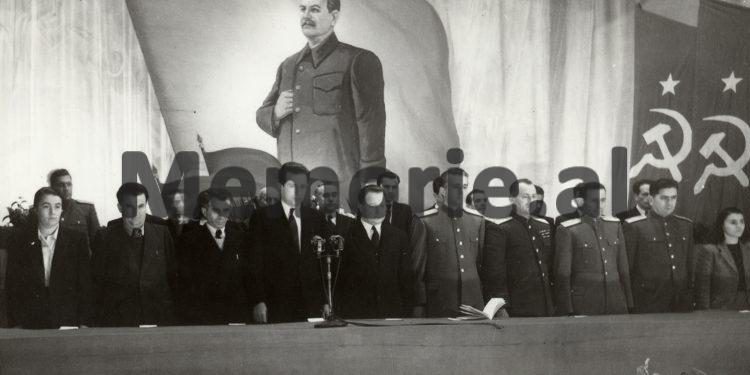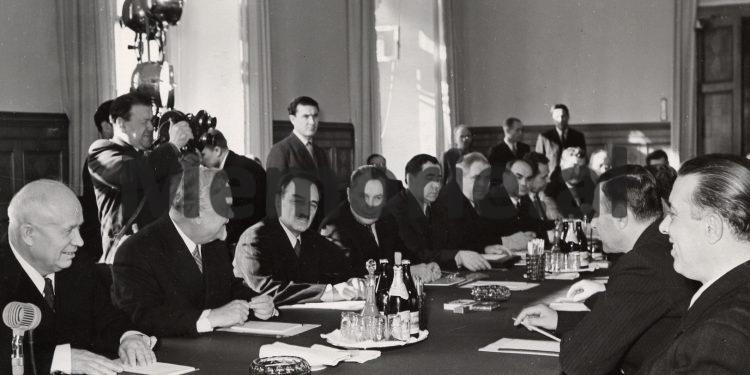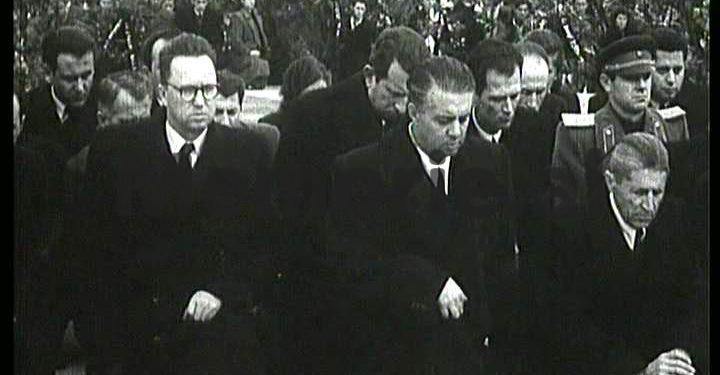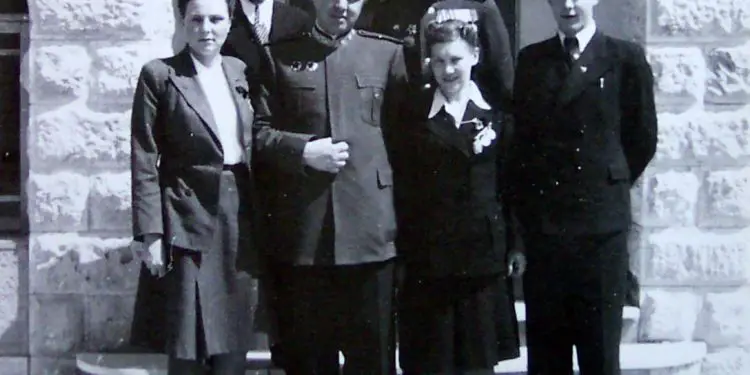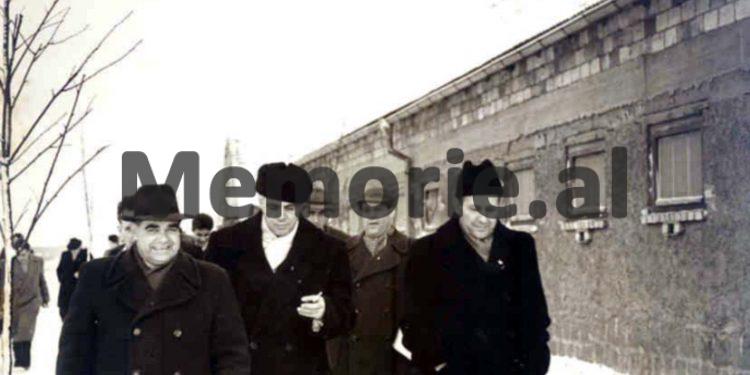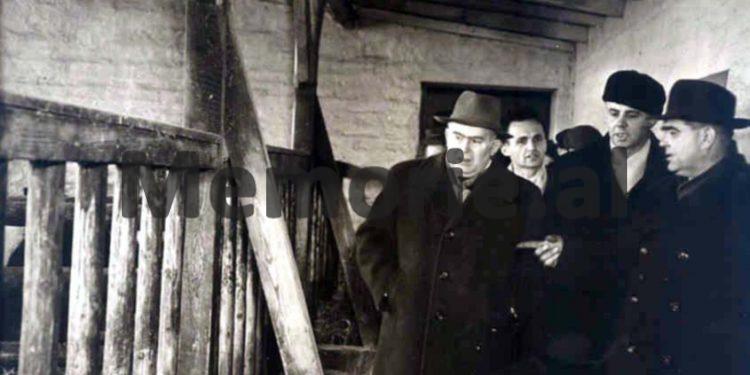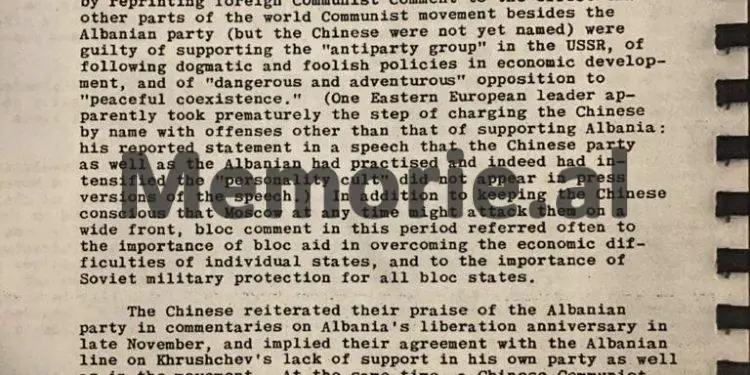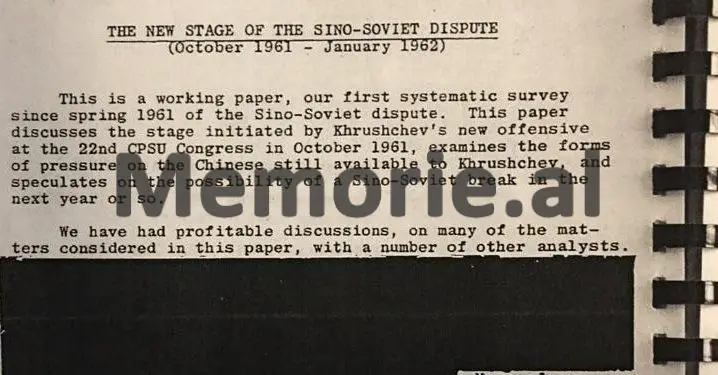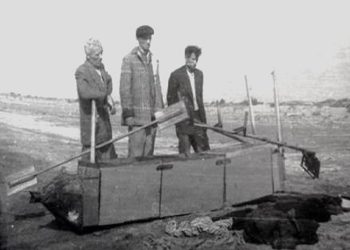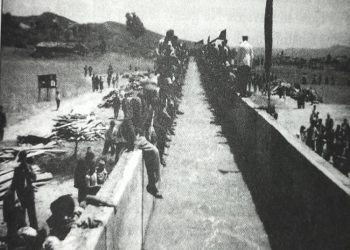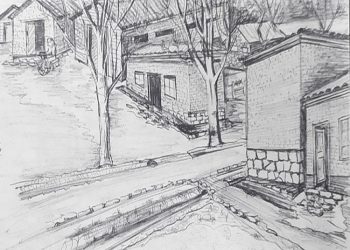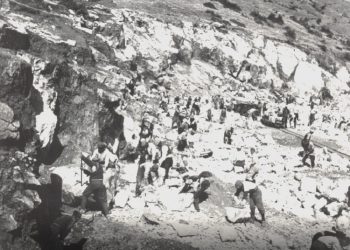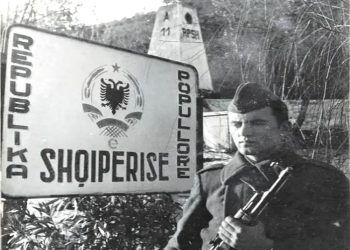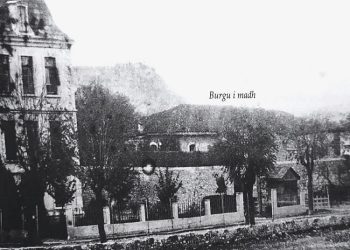Dashnor Kaloçi
Memorie.al publishes some documents extracted from a series of files of CIA secret archives (CENTRAL INTELLIGENCE AGENCY), which deals with the strained relations between official Tirana and Moscow in the years 1960-’61 when the final rupture took place. their relationship which is given permanently and chronologically by describing in detail everything that has happened between the two countries. These documents, which have been preserved for almost half a century in the secret archives of the CIA in Washington, and have already been declassified, were donated only some time ago to the General Directorate of Archives of the Albanian State by Mr. Ch. Osterman, who is president of the Cold War International History Project at Woodrow Willson Center. While the source from which these documents were obtained, is the National Security Archive, George Washington University.
The breakdown of relations between Albania and the Soviet Union in the early 1960s, as well as the ongoing conflicts between the two countries’ main leaders, Enver Hoxha and Nikita Khrushchev, and the two communist parties led by there, it seems, have not gone unnoticed by the US secret services. This is also noticed by a series of documents of the CIA secret archives (CENTRAL INTELLIGENCE AGENCY), where the strained relations that were established between official Tirana and Moscow at that time, are given permanently and chronologically, describing in detail everything that happened in between them. These documents, which have been preserved for almost half a century in the secret CIA archives in Washington, and have already been declassified, were donated only some time ago to the General Directorate of Archives of the Albanian State Archives by Mr. Ch. Osterman, who is president of the Cold War International History Project at Woodrow Willson Center. While the source from which these documents were obtained, is the National Security Archive, George Washington University. From these documents, which belong to the period from the mid-1950s to March 1962, when the final breakdown of relations between Albania and the Soviet Union took place, the editorial office of Memorie.al has selected for publication some parts of summary of CIA documents, which speak of Albanian-Soviet disputes.
CIA documents: The break-up of the Soviets with Albania in 1961
In the five weeks that followed between the XXII Congress of the PKBS (October 31) and the breakdown of Albanian-Soviet diplomatic relations (December 3), events unfolded rapidly through the lines that had been warned by Congress. These developments regarding the Albanian-Soviet controversies and the actions related to them, the support of “Perping” for Albania, and the Soviet warnings to China itself, we are giving below as discussed. The Albanian Labor Party declares war on the editorial of its November 1 newspaper, presenting Khrushchev as a liar, slanderer, imposing and intriguing anti-Marxist, and stressing that Chu En-Lai had openly opposed Khrushchev’s action. at the congress. Peiping’s People’s Daily republished this, as did the October 20 Albanian statement, the October 27 summary speech given by Nikita Khrushchev, the October 28 resolution to remove Stalin’s body from the mausoleum. , and an Albanian editorial of the same date on a Marxist-Leninist basis for Albanian foreign policy. In such material, Perping published for the first time the attacks on Khrushchev by other party leaders. There were sharp Albanian-Soviet returns to Perping itself during the celebrations of the anniversary of the Soviet Revolution of October (November 7) and the anniversary of the Albanian Labor Party (November 8). The Soviet Ambassador, Chernonchenko, in a teasing speech, denounced the Albanian Labor Party for its stance on Stalinism and its efforts to disrupt the world movement. Albanians left on November 8, while the Albanian ambassador, in another harassment, insisted on the loyalty of the Albanian Labor Party to Marxism-Leninism and the statements made in 1957 and 1960. He cited Albanian efforts to strengthen unity. of the movement and argued that they were the ones who had tried to exclude the ALP from the world movement for disagreeing with the decisions of the XX Congress of the Communist Party of the Soviet Union, who were the disruptors of the movement. The most important speech in these cases was given by Enver Hoxha in Tirana on November 7, which was addressed to the two anniversaries and issues of strategy, authority, and discipline of state relations. Introducing his enemies Tito and Khrushchev as imperialists, Hoxha personally accused Khrushchev of slander, blackmail, and “blockade” and he compared this to Stalin’s role as a friend and protector of Albania. Hoxha insisted that Stalin’s merits outweighed his weaknesses (exactly the Chinese position). He attacked Khrushchev for using the issue of Stalinism to humiliate people he did not like, and said Khrushchev himself was a flagrant culprit in building the “cult of the individual.” As for strategy issues, Enver Hoxha did not accept the positions of the Communist Party of the USSR in terms and arguments used by the Communist Party of China in attacking Soviet positions (often distorting them to do so). ). Hoxha noted that it was the revisionist practice that cited new conditions to justify an “opportunistic” view and to describe an opposition as “dogmatic” or adventurous. He said that Khrushchev, under the pretext of fighting dogmatism, bastardized Marxism-Leninism and broke away from basic principles (just like Chinese accusations). The Soviet emergence of the balance of power, he said, fueled the illusions of “reformists and pacifists” and weakened the fight against imperialism. He criticized the “incorrect” and “harmful” view that imperialism withdrew from the wars, and said that efforts to avoid wars should emphasize the power of the bloc and the people’s struggle, not the “good intentions” of the West. It was not Albania that feared imperialism, but he, Khrushchev, who had postponed a German agreement. (The Communist Party of the Soviet Union, on January 30, 1962, responded to this accusation. A commentator argued that it was not a matter of “fear” or lack thereof, but of the need to find a solution. He described Albania’s behavior as ” adventure “). Hoxha also personally criticized Khrushchev for trying to achieve a “peaceful coexistence” as a general line of the Bloc’s foreign policy, to emphasize the possibility of peace, to be empowered through communist parties, and to do so for himself. Yugoslavia.
“Hoxha accuses Khrushchev”
As for the problems of authority and discipline, Hoxha again made the same accusations against Khrushchev that China had made or was preparing to make. It was true, Hoxha said, that the Albanian Labor Party distanced itself from the decisions of the 20th Congress of the USSR (as underlined above), but was free to do so because the decisions of a party could not be binding on other parties (Chinese position). In the public attacks of the Albanian Labor Party, he continued, Khrushchev violated the principles of the December 1960 declaration (which called for international conferences if bilateral meetings failed). Because Khrushchev had failed at the Bucharest Conference in November 1960 to unite the parties solidly (against the Chinese and Albanians), he was “frightened” by another conference and used his party’s congress to sabotage one. such a conference. Hoxha also reviewed the steps that Khrushchev had taken in state-to-state relations, such as: attracting loans and specialists, the demand for quick repayment of old loans, the significant reduction of trade, the abolition of scholarships for Albanian students in USSR, adaptation of unspecified military assessments and slander of Albania in the press (slander against it). Hoxha claimed that other Eastern European countries had cooperated in trying to isolate Albania politically, economically, and militarily. Finally, Hoxha said that Khrushchev had gone so far as to openly demand the overthrow of the Albanian leadership. Hoxha concluded with a statement of confidence that Khrushchev would fail. He had previously said in a speech that he had friends who “have not left us and will not leave us in the lurch” and he specified this at the end by saying “Soviet” people and the Chinese and other friendly peoples. In short, as a result, the Albanian embassy in Moscow began to relocate to another mission, including those with which Albania had no diplomatic relations. Two of the articles were: The statement of the Central Committee of October 20 and the speech of Hoxha of November 7.
“Hoxha demands the overthrow of Khrushchev”
According to credible Soviet allegations, Albanians also sent such material to the central committees of Soviet party organizations in the republics (apparently as part of their efforts to overthrow Khrushchev), and they also intensified the use of Albanian students in the USSR to conveyed “anti-Soviet propaganda.” In his November 7 speech, Hoxha directly said everything he had to say, from the Sino-Albanian point of view and other Albanian statements, between November 7 and receiving the Soviet note of December 3 for the breakdown of diplomatic relations with Albania, without adding almost nothing. One of the issues in Hoxha’s speech, in which Khrushchev was a “horned devil” for encouraging Greece to go to war with Albania, was extended to another speaker on November 25, who claimed that Khrushchev encouraged “imperialist wolves” to attack Albania. The same speaker presented the Chinese Party as “an excellent example for communists around the world.” With such a party, Albanians would march together through “storms and storms.” On November 21, Pravda claimed that the “International Communist Movement” (i.e. most parties) had strongly opposed the Albanian leaders, but that later not only had they not considered (paid attention to) this criticism, but they had now “deepened their mistakes” by slandering the Communist Party of the USSR and others and trying to hide their divisive activity. On November 25, the Soviet Deputy Foreign Minister summoned the Albanian ambassador to Moscow and made two statements. One of them noted that the work of the Soviet ambassador and other Soviet diplomats in Tirana had been blocked, that the embassy itself had been “isolated”, that Albanians had demanded a reduction in embassy staff by about 2/3 and, as a result, its staff. he would have returned to Moscow in mid-August. The other statement protested the actions of the Albanian embassy in Moscow for circulating the anti-Soviet material mentioned above and the use of Albanian students for such purposes and demanded the return of the Albanian ambassador. On November 27, Pravda repeated a number of accusations (summarized as “fraud, dishonesty, adventurism, and cruel violation of the principles of proletarian internationalism”), as Izvestija did on November 29. The Soviet press overturned previous treatments of the national days of Yugoslavia and Albania, both on November 29, commenting in a friendly way on Yugoslavia and in an unfriendly way on Albania.
“Pravda” responds to Hoxha
On December 2 (a day before the date of the Soviet note on the closure of the Soviet embassy in Tirana), Pravda responded to Hoxha’s November 7 speech. Clearly affected by Hoxha’s accusation that Khrushchev had built the “cult of the individual”, Pravda defended Comrade Khrushchev’s “Historical Service”, personally in restoring Leninist methods and the Leninist spirit in the Communist Party of the Soviet Union and relations within the Communist Bloc. He reiterated that the “anti-party group” in the USSR and Albanian leaders also wanted to take a regressive course. Announcing the rift, the article addressed Albania that it was almost “isolated” itself and that it had seceded from the Warsaw Pact and CEMA itself. Discussing Hoxha’s statement that he was free to disagree with the decisions of the Congress of the Soviet Party, Pravda defended the view that “all” parties had approved the results of the 1956 Congress. This was not entirely true: although both sides, the Chinese and the Albanians, had approved Khrushchev’s report at that congress, the Chinese and others had quickly criticized the treatment of destabilization, and the Chinese had not even approved one of the basic theses. strategy. As for the accusation of violating the agreement to hold multi-party conferences to resolve disputes, “Pravda” avoided this with the argument that it was necessary to take a harsh public criticism in the face of Albanian efforts to “undermine the unity of the state. socialist “. Pravda reiterated that the Albanian Labor Party had consistently rejected Soviet efforts to resolve the conflict, citing the October 5 Albanian editorial, which went so far as to claim that Albania’s relations with the USSR would then be reversed. from the “principles of peaceful coexistence”, d. m. th. principles that guide relations between states with “different social systems”. Pravda continued to criticize the behavior of Albanians since the Congress, especially Hoxha’s (November 7) speech full of “abuses” and containing unprecedented “shameful slander” that the USSR and Yugoslavia had conspired to provoke a revolt in Hungary. in 1956. The Pravda article concluded with an expression of confidence that the Bloc (apparently with a new Albanian leadership) would emerge from its “even more monolithic” problems./Memorie.al




